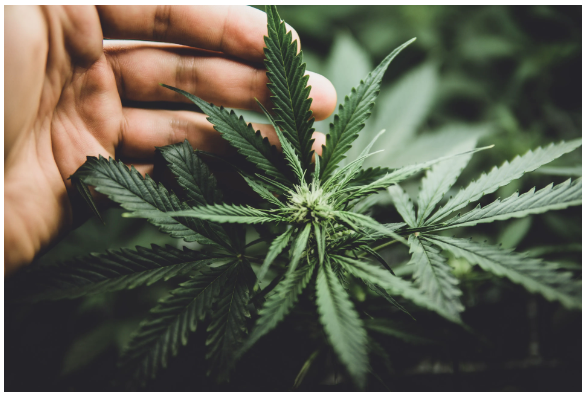Study: Acute, Consistent Treatment With CBG Oil May Decrease Blood Pressure
For individuals with normal blood pressure, a sudden drop in blood pressure can be dangerous because it creates a lack of critical oxygen.
Consistent use of acute cannabigerol (CBG oil) was found to decrease the blood pressure of healthy mice, according to investigators from the Pennsylvania State University College of Medicine who recently presented their research at the American Physiology Summit in Long Beach, California.1
For individuals with normal blood pressure, a sudden drop in blood pressure can be dangerous because it creates a lack of critical oxygen—in effect, this can cause damage to the brain, heart, and other organs.1
“Overall, these findings add to the growing literature regarding the role of cannabinoids in blood pressure regulation,” study authors wrote in the paper.2
Research on Cannabis sativa is quickly growing, as it is becoming well-recognized as analternative therapeutic option for chronic pain, cancer, anxiety, and other diseases without many adverse effects (AEs). Research into cannabis has also begun to look more specifically at individual cannabis compounds, such as CBG, psychoactive tetrahydrocannabinol (THC), and cannabidiol (CBD).2
In acid form, CBG is the parent compound of THC and CBD. However, most cannabis-containing products contain a relatively low amount of CBG because the plant converts the CBG to CBD and THC.1
Certain studies have identified parallels between CBG and CBD—both could be neuroprotective, anticancer, anti-inflammatory, and antibacterial.2 Some companies are even breeding strains of cannabis that contain more CBG, which is used to treat inflammation and chronic pain.1
Prior studies of the cannabinoid compounds suggests that they help to regulate the cardiovascular system, but evidence is conflicting about whether it is cardioprotective or not. Particularly, few studies have looked at the compound CBG in relation to the cardiovascular system, none of which have reported on effects on blood pressure. This recent study aimed to provide moreinsight into the mechanism of CBG on this system.2
Penn State investigators gave mice a consistent dose of CBG for 14 days, collecting hourly data on how the compound affected their vital signs (blood pressure, heart rate, and locomotor activity).1 The team discovered that the compound delivered a “small, but significant drop” in blood pressure over the study period,1 but it did not impact heart rate or locomotor activity.2
Findings from this study align with past studies, which have reported that cannabinoid compounds affect blood pressure. These prior findings have shown that synthetic THC decreases blood pressure, that cannabis users risk orthostatic hypotension, and that CVD can lower blood pressure in hypertensive rats.2
“Our research suggests that [CBG] could lower blood pressure, which could be dangerous for people with normal blood pressure,” said lead study author Victoria Vernail, a PhD candidate at the Pennsylvania State University, in a press release. “On the other hand, [CBG] could also be studied as a new way to treat high blood pressure.”1
References
1. American Physiological Society. Cannabis Extract Causes Blood Pressure Drop in Healthy Mice. News Release. April 21, 2023. Accessed April 21, 2023. https://www.physiology.org/professional-development/meetings-events/american-physiology-summit-2023/abstracts?SSO=Y&gclid=CjwKCAjw3POhBhBQEiwAqTCuBtsCRQHGwZxQyb-ZJG4YOh42X5p-InF-QjK-CRnam6FGKm1eGYsZ9xoCQVwQAvD_BwE
2. Vernail V, Bingaman S, Silberman Y, et al. Acute Cannabigerol Administration Lowers Blood Pressure in Mice. Front Physiol. 2022. doi: 10.3389/fphys.2022.871962
FDA Approves Rezafungin Injection for the Treatment of Candidemia, Invasive Candidiasis
March 27th 2023Rezafungin (Rezzayo; Cidara Therapeutics Inc, Melinta Therapeutics LLC) is the first new treatment option approved for individuals with candidemia and invasive candidiasis in more than a decade.

